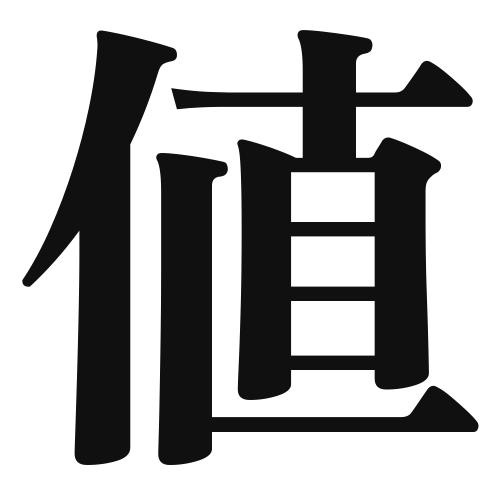1. Overview of Meaning
The kanji “値” (chi) primarily means “value” or “worth.” It is often used in contexts related to price, evaluation, and significance.
2. Formation and Radical
The kanji “値” is a phonetic compound (形声文字) that combines the radical for “value” (値) with a phonetic component. The radical is 値, which relates to the concept of value.
3. Examples of Usage
Common words and phrases that include “値” are:
- 値段 (ねだん, nedan) – price
- 価値 (かち, kachi) – value
Example sentences in daily conversation:
- この商品の値段はいくらですか? (このしょうひんのねだんはいくらですか?) – How much is the price of this product?
- この絵の価値は高いです。 (このえのかちはたかいです。) – The value of this painting is high.
4. Synonyms and Antonyms
Similar kanji with related meanings include:
- 価 (か, ka) – value, often used in the context of worth or price.
Antonyms include:
- 無価値 (むかち, mukachi) – worthless, having no value.
5. Cultural and Historical Background
The concept of “値” is deeply rooted in Japanese culture, where the value of items can reflect social status and personal worth. Common proverbs and idioms include:
- 「値打ちがある」 (ねうちがある, neuchi ga aru) – to have value or worth.
This reflects the importance of value in both material and personal contexts in Japanese society.
